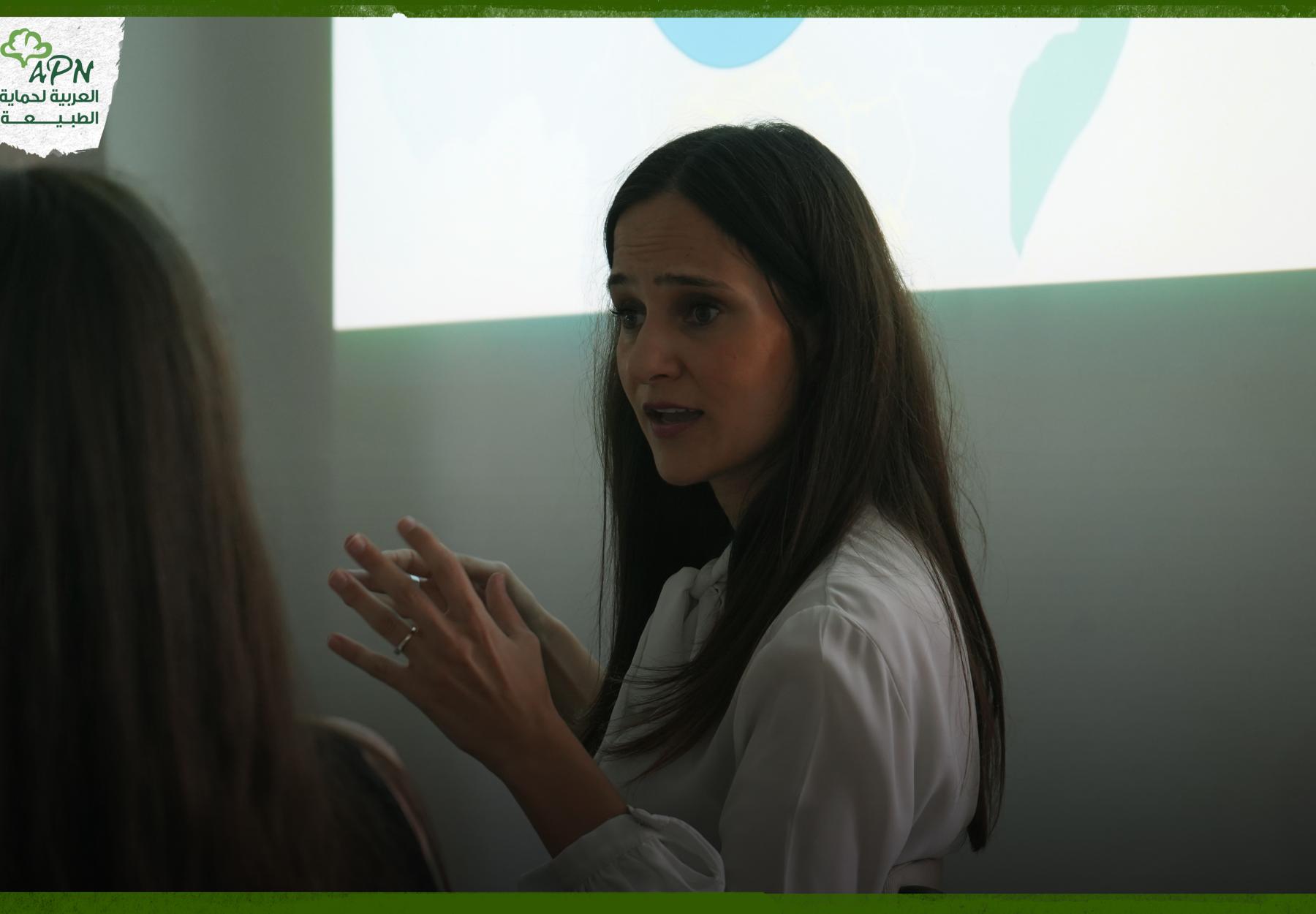
APN/Amman – Zoom
27 June 2022
At the invitation of the team of “A Growing Culture”, the general manager of the Arab Group for the Protection of Nature (APN), Mariam Al Jaajaa, delivered an awareness raising lecture at Darat al Funun-The Khalid Shoman Foundation, in which she addressed the difficulties and solutions to achieve food sovereignty in the Arab World, and particularly in Jordan and Palestine.
In her discussion of Jordan, Al Jaajaa indicated that the direct contribution of agriculture to the gross domestic product amounted in the decade of the fifties to 40%, but the ratio plummeted sharply according to official figures to reach 4% in 2022. On the other hand she pointed out that the percentage of planted land from the total arable land (livestock and greenery) in Jordan amounts to only 11%. This is an indicator of shortcomings in managing natural resources and the relation to food security which is amply discussed but without an investigation of its essence, while not adequately sufficiently addressing the issue of food sovereignty.
The general manager of the Arab Group for the Protection of Nature (APN) overviewed the figures related to wheat in particular, where Jordan produces only 3-5% of its needs, even though it was an exporter of wheat in the thirties and sixties of the previous century.
According to Al Jaajaa the marginalization of the agricultural sector and its declining standing will lead to a dissipation of food and agricultural security, poverty and unemployment on the one hand, and will make the country very vulnerable in any global or regional crisis, particularly since agriculture constitutes a major source of income for 75% of rural and Bedouin communities in Jordan.
As regards Palestine she alluded to the impact of the Oslo Accord 1993 on liberalization of the economy, which led to the inundation of Palestinian markets with Israeli products (75% of imports in Palestine Authority territories are from Israel), not to mention Israeli control of the Jordanian and Egyptian borders which are the two Palestinian outlets to the region, in addition to the hindrance and prohibition of the development of a Palestinian currency or a Palestinian central bank while permitting only the Palestine Monetary Authority to operate which has a very limited scope of action. Actually, Israel has motives for monetary control of the Palestinians represented in collecting (seizing) taxes. What is farther than that is that Oslo demolished hope for an economic glimmer of hope where Palestine was integrated in a customs union with its colonial power whereby exporters utilize Israeli channels as compulsory gateways to the Palestinian market (US Department of Agriculture Report for 2020), which means that there are substantial financial revenues which the Palestinians do not avail of.
Moreover, the lack of food security directly affects 40% of the Palestinians in the West Bank and 60% of the Palestinians in Gaza.
Al Jaajaa overviewed the rapid movements to advance the agricultural sector in the region as a whole through monitoring and institutionalizing the sector particularly given that there is no checking and monitoring of the projects supported from abroad, whereby the ministries of agriculture behave as an implicit contractor, not to mention the lack of specialized units responsible for food security.
Insofar as solutions, she emphasized the necessity of strengthening the mechanisms of participation and empowering farmers through institutions, in addition to supporting the local food systems and resisting the consumption pattern which has raised our share of meats to extraordinary levels, surpassing the food systems of our region, in addition to safeguarding agricultural lands and enhancing productivity.